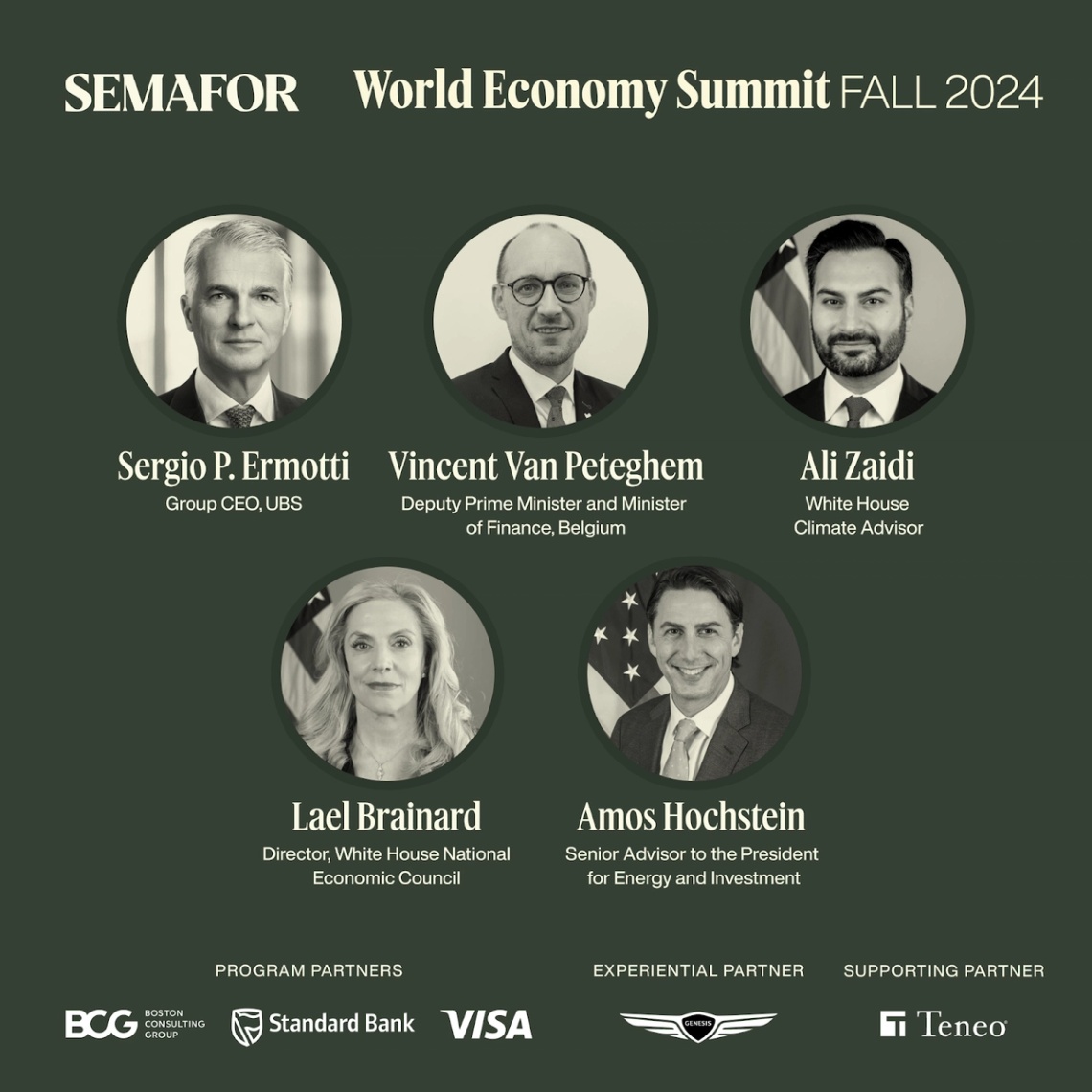 Sergio Ermotti, Group CEO, UBS; Vincent Van Peteghem, Deputy Prime Minister and Minister of Finance, Belgium; Ali Zaidi, White House Climate Advisor; Lael Brainard, Director, White House National Economic Council; and Amos Hochstein, Senior Advisor to the President for Energy and Investments, White House, will join the Fall Edition of Semafor’s World Economy Summit. Hosted in the Gallup Great Hall and spanning four sessions beginning today, Semafor will feature on-the-record interviews on the state of global finance, the future of technology, digital payment infrastructure, and sustainability. Tune in live for real-time coverage. |